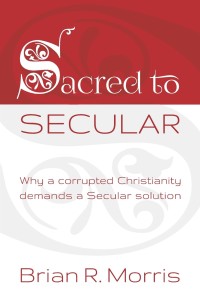 Politics and religion are both in a state of flux — a bell tolls loudly with a call for accountability from a disgruntled public. Hard on the heels on Treasurer Hockey’s age of entitlement speech both sides of politics face much closer scrutiny, controversially triggered by Bronwyn Bishop’s chopper trip to Geelong and her subsequent resignation.
Politics and religion are both in a state of flux — a bell tolls loudly with a call for accountability from a disgruntled public. Hard on the heels on Treasurer Hockey’s age of entitlement speech both sides of politics face much closer scrutiny, controversially triggered by Bronwyn Bishop’s chopper trip to Geelong and her subsequent resignation.
But religion, too, is in turmoil with seemingly endless revelations of impropriety continuing to emerge from the Royal Commission into Child Sexual abuse.
And while politics and religion may appear unrelated — certainly on these separate issues — it is the question of ‘accountability’ that locks them tightly together.
Marriage equality has become a central issue. Both Labor and Liberal have floundered on this topic that has so recently been resolved by Ireland and America — two of the most religious countries on Earth.
A two-thirds coalition party room coup sank any hope of a Liberal Party conscience vote. This followed Labor’s National Conference that reneged on making gay marriage a binding ALP policy.
And the gorilla in the room is simply religion.
Across the political spectrum, both state and federal, Christian politicians block many social policies based on nothing more than ancient scripture that’s known to be flawed.
A clear majority of Australians are now non-Christian, but exactly what religious beliefs do our MPs hold? We simply don’t know! Very few declare their faith in their parliamentary biographies. Why the secrecy?
In this ‘evidence-based’ era, the voting public has a right to know where their elected representatives stand — not merely their Church allegiances but the full extent of their beliefs.
And in no way does this compromise their constitutional right to faith!
Just how many MPs are among the 32% of Australians who assert “Genesis is the Word of God“? Do they also believe the story of Noah as historical fact, or Earth is only 6,000 years old? The public, and media, need to know.
Religion can dramatically dictate an MPs attitude to a whole raft of contemporary social policy. It’s not just the fiasco of obstructionism by Labor and Liberal on marriage equality; it extends to voluntary euthanasia, equality for women, ethics classes in schools, and a score of other key topics.
It’s time all parliamentarians were subjected to greater religious transparency — to be more accountable for their blocking votes in the party room and on the floor of parliament.
Parliamentarians currently declare their pecuniary interests — for obvious reasons of probity. Is it too much to ask that they also declare, openly and honestly, the extent of their religious beliefs?
It does not deny them their constitutional right to faith but it will allow the public to make more informed choices about whom they elect to parliament.
To be fully secular, Australia needs to take the next bold step and finally remove the medieval taboo; never to question religion. The public and media need to demand parliamentary accountability — where political religion can covertly distort the contemporary socio-political agenda.
| Author | Brian Morris is Director of Plain Reason. "Promoting science, logic, reason and critical thought" He is author of Sacred to Secular: Why a corrupted Christianity demands a secular solution. |

